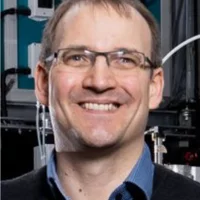Biophysical Instruments
BIO is exceptionally well equipped for biophysics studies. Our biophysical instrumentation includes a number of instruments for characterisation of protein stability, their molecular weight and stoichiometry of proteins complexes, and affinity of biological interactions. These include a qPCR thermal shift instrument, a nanoscale differential scanning fluorimeter (nanoDSF), a circular dichroism (CD) spectrometer, an isothermal titration calorimeter (ITC), a benchtop surface plasmon resonance (SPR) instrument, a microscale thermophoresis (MST), a bench top fluorimeter, absorbance spectrophotometers, multimode plate readers, and a multi angle light scattering instrument (SEC-MALS).
For more information please follow this link (https://intranet.psi.ch/en/bmr/biophysics-bmr) or contact Dr. Richard Kammerer (richard.kammerer@psi.ch).
Crystallography
A distinctive advantage of LBR as a research environment is the presence, on campus, of the Swiss Light Source (SLS). The macromolecular crystallography (MX) beamlines perfectly complement the excellent infrastructure of LBR for protein preparation, crystallization, crystallographic computing and structure analysis. We work in close collaboration with the MX group at the SLS in several areas, especially crystallization, in situ diffraction screening and data acquisition.For more information follow this link or contact Dr. May Marsh.

